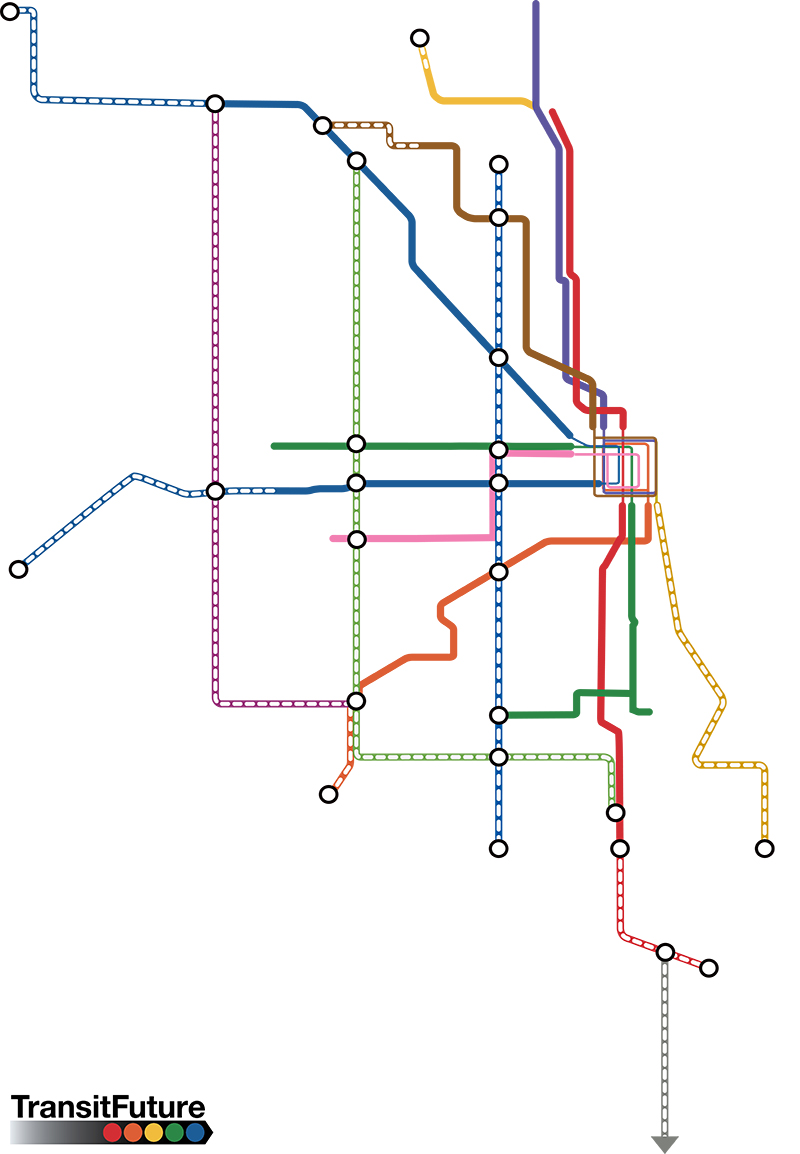Did You Know?
How cities are fast-tracking transit expansion

If you look around the U.S. for cities where exciting things are happening in public transit, you’ll notice one thing nearly all of them have in common: they’re raising local revenue to gain access to available federal dollars.
In 2004, the eight-county Denver metro region passed a ballot initiative to raise the sales tax by 0.4 percent to fund transit expansion. Today, there are six new rail lines under construction in the Denver area. In 2008, Los Angeles County passed a similar initiative to raise the sales tax by 0.5 percent for transit and today there are five lines under construction, including a subway.
We’re hopeful you’ll soon be able to add the Chicago region to the list. Our Transit Future campaign, in partnership with the Center for Neighborhood Technology, is built on the model of success from Denver and LA. The Illinois Constitution does not allow binding ballot referenda, so instead we’re focused on building support among the 17 members of the Cook County Board of Commissioners to raise revenue to fund transit expansion.
Sign a letter to your county commissioner today to tell them you support Transit Future.
Raising local revenue is the only way we’re realistically going to see new rapid transit lines in the Chicago region anytime soon, and it’s proven to be an efficient investment in cities across the U.S. Denver leaders credit transit investment as one of the biggest reasons the city’s real estate market is booming and Millennials are clamoring to move to the region. Los Angeles had an even bigger hill to climb before the ballot initiative, but now Mayor Eric Garcetti calls transit investment a “powerful lever for making people think differently about LA.”
The best part is we wouldn’t have to do it on our own. Several federal grant programs exist that cities can use fund transit expansion, but they require some level of local investment. If a city can’t come up with the local match, it can’t even apply for the funding. Cash strapped local governments are struggling to raise local revenue nationwide so Chicago would be well-positioned to win sizable federal grants if Transit Future is successful.
We won’t be successful unless community partners and riders like you join the movement for better transit in Chicagoland. Sign a letter to your county commissioner today and learn more about the projects that could be funded in your area at our campaign website. If you’d like to get more involved with the campaign, please take our volunteer survey.
Make a Donation
Your tax-deductible donation supports the important work that Active Trans does throughout the region
